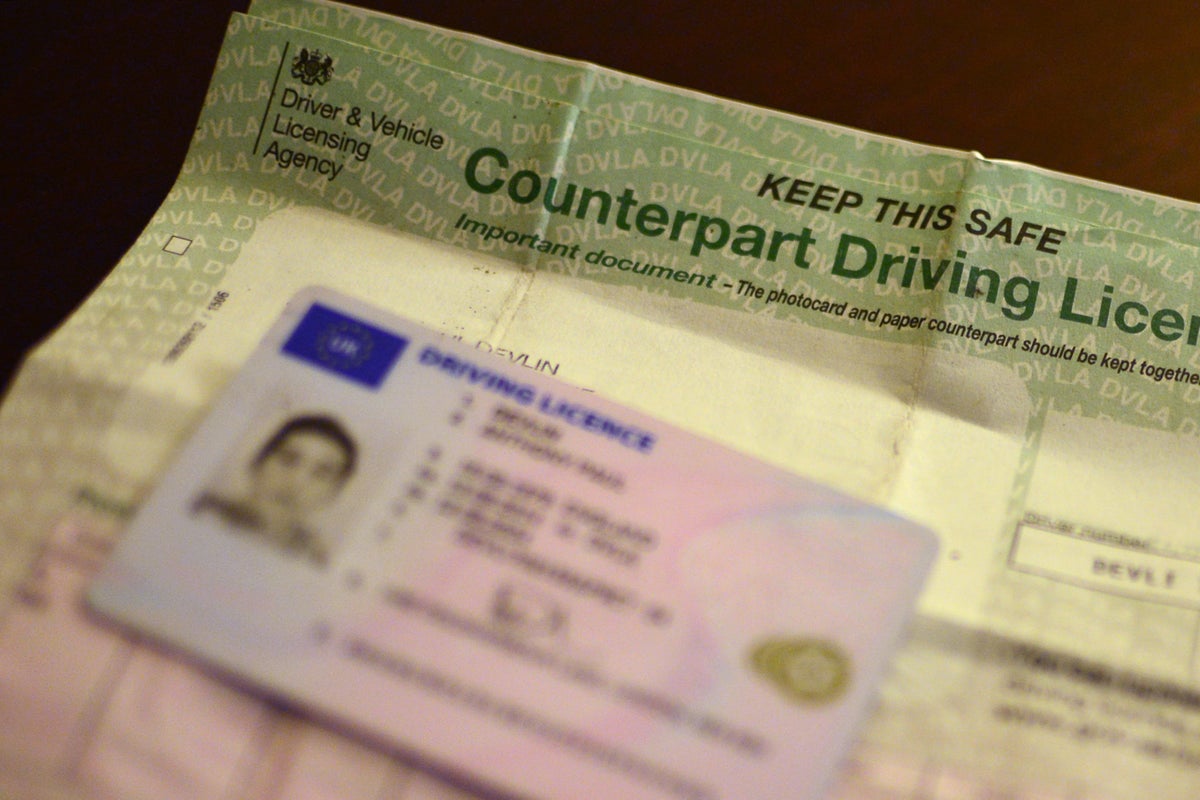For free real time breaking news alerts sent straight to your inbox sign up to our breaking news emails
Sign up to our free breaking news emails
Three million people who applied for a driving licence since April 2020 have experienced delays – costing some their jobs or income, a report by MPs has found.
The Driver and Vehicle Licensing Agency’s (DVLA) system to process applications is “slow, inefficient and in need of major improvement”, the Public Accounts Committee (PAC) has said.
People who gave evidence to the committee described losing their jobs or income and being unable to start or return to work because of the delays, while drivers with medical conditions were hit the worst, it was said.
The coronavirus pandemic “inevitably” had an impact, according to the PAC, with three million suffering delays since the month after it first hit and around 60 million phone calls going unanswered in a two-year period.
Some of the DVLA’s operations are antiquated, it lacks a comprehensive strategy for modernisation and on PAC we're unconvinced they’re more ready for the next crisis
Dame Meg Hillier, Public Accounts Committee
Recommended
- Charity boss speaks out over ‘traumatic’ encounter with royal aide
- Ukraine war’s heaviest fight rages in east – follow live
The Department for Transport (DfT) was accused of taking a “hands-off approach” and failed to ensure DVLA is using modern working practices and up-to-date technology.
Labour’s Dame Meg Hillier, chair of the Committee, said: “The pandemic inevitably made operations more difficult, but the DVLA and DfT were not prepared for the challenge of keeping essential driving licence services running – and especially not for those who needed it most.
“Some of the DVLA’s operations are antiquated, it lacks a comprehensive strategy for modernisation and on PAC we’re unconvinced they’re more ready for the next crisis.
“When that does arise, it will again be the most vulnerable customers – people for whom driving is a lifeline – who are worst hit. That’s just not acceptable. The DVLA has to get its act together.”
The PAC said some DVLA customers experienced isolation and worsening mental health when unable to go about their usual daily lives without a valid driving licence.
Between April 2020 and March 2022, around 60 million calls to the DVLA about driving licences went unanswered – 94% of the total it received, it said.
The number of complaints about the DVLA received through MPs “increased tenfold” between 2019-20 and 2021-22, the report said.
The PAC suggested the DVLA: set up better systems for those experiencing delays, improve its communication with customers and implement a contingency plan to be shared with the committee.
The Government and DVLA must get a grip, and ensure people no longer have to experience these unacceptable delays
Wera Hobhouse, Liberal Democrats
Liberal Democrat Transport spokesperson Wera Hobhouse said: “These shocking delays show that DVLA customers are being let down on an industrial scale.
“Delays in getting a driving license are not just a minor inconvenience, they can lead to people losing their jobs or worsening mental health.
“The Government and DVLA must get a grip, and ensure people no longer have to experience these unacceptable delays.”
A DVLA spokesperson said: “We are back to normal processing times across our services. All standard paper applications were back to normal turnaround times by May 2022.
“Our online services worked well throughout the pandemic and for the vast majority of our customers, their dealings with DVLA would have been trouble free. 98% of people who applied online received their driving licence within just a few days.
“During the pandemic, we issued more than 24 million driving licences, the vast majority of which were issued within three working days.”
A DfT spokesperson said: “The report does not represent a balanced picture of the work that has taken place in the department.
Recommended
- Natural History Museum named most visited indoor UK attraction again
- Rolls-Royce receives funding to develop nuclear reactor for Moon exploration
- One in 24 local road bridges cannot carry heaviest vehicles, councils say
“As well as ministers closely monitoring DVLA’s progress, we provided practical support during the pandemic, including establishing workplace Covid testing in Swansea and facilitating additional office space in Birmingham.
“We continue to support DVLA’s investment in developing and promoting online services, as we did prior to and throughout the pandemic.”
✕
Subscribe to Independent Premium to bookmark this article
Want to bookmark your favourite articles and stories to read or reference later? Start your Independent Premium subscription today.
SubscribeAlready subscribed? Log in{{/url}}

